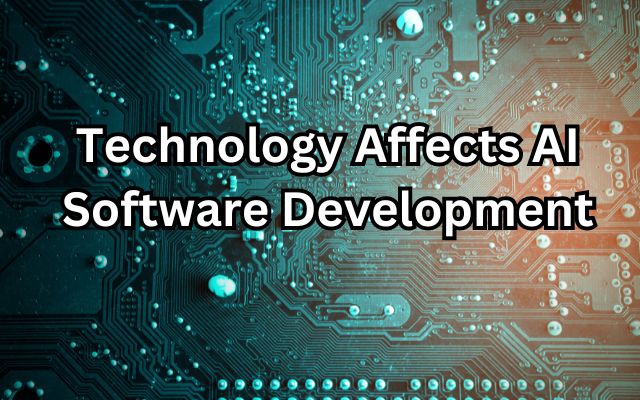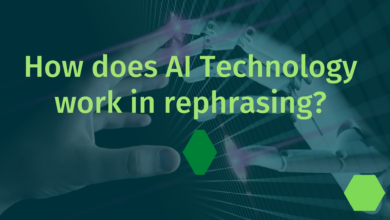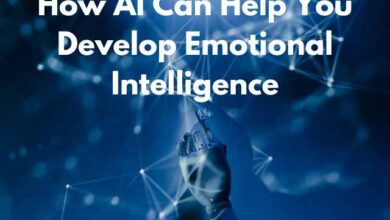10 Ways Evolving Technology Affects AI Software Development
Explore how evolving technology influences AI software development. Discover the impact of 10 key technological advancements.

As technology continues to advance at an exponential rate, the landscape of AI software development is constantly changing. This evolution brings about transformative changes that affect many aspects of AI development.
In this article, we’ll look at ten key ways that evolving technology shapes the world of AI software development, including how emerging trends and innovations influence the process from inception to deployment.
10 Ways Evolving Technology Affects AI Software Development
Here are 10 ways evolving technology affects AI software development:
Generative AI and Code Automation
GPT models and other generative AI technologies are revolutionizing code generation and automation in AI software development.
These models can help developers create complex algorithms, increasing the efficiency of offshore teams for AI software development and greatly speeding up the progress.
By analyzing large datasets and understanding patterns, generative AI tools provide insights into efficient code structures. This directly increases offshore team for AI software development productivity and innovation.
Code Validation and Quality Assurance
AI software development now includes advanced tools for code validation and quality assurance.
Automated testing frameworks powered by AI algorithms help developers identify bugs and errors more quickly.
Machine learning algorithms can analyze code patterns to anticipate potential problems, resulting in improved reliability and performance in AI applications.
Manufacturing as a New Paradigm
The incorporation of AI into manufacturing processes introduces a new paradigm in software development.
AI-powered automation streamlines production workflows, maximizing resource utilization and productivity.
AI-enabled manufacturing solutions, from predictive maintenance to supply chain management, challenge traditional development approaches by emphasizing real-time data analysis and adaptive decision-making.
Enhanced Testing and Debugging
Emerging technologies enable better testing and debugging methods in AI software development.
AI-powered testing tools simulate a wide range of scenarios, allowing for a comprehensive assessment of software performance across multiple environments.
Machine learning algorithms help detect anomalies, irregularities, and vulnerabilities in AI systems, ensuring robustness and reliability.
Democratization of Development Skills
Accessible tools and resources powered by evolving technology help to democratize AI development skills.
Low-code and no-code platforms allow people from all walks of life to contribute to AI software development, democratizing access to innovation.
Online education platforms and AI-driven tutorials offer learning opportunities, contributing to a more inclusive and diverse developer community.
Model Training and Optimization
Technological advancements have transformed model training and optimization processes in AI software development.
Parallel processing and GPU acceleration are used in distributed computing frameworks to accelerate model training while reducing time and computational costs.
Reinforcement learning algorithms enable continuous optimization, which allows AI models to adapt to changing datasets and dynamic environments for improved performance.
Integration of AI APIs
AI API integration makes it easier to incorporate advanced features into software applications.
Pre-trained AI models and APIs provide ready-made solutions for common tasks like natural language processing and computer vision.
AI APIs enable developers to focus on application logic and user experience by abstracting complex algorithms into user-friendly interfaces, thereby accelerating development cycles and encouraging innovation.
Deployment and Scaling Options
As technology advances, AI software applications have a wider range of deployment and scaling options.
Containerization technologies such as Docker allow for efficient deployment across heterogeneous environments while ensuring consistency and portability.
Cloud-based platforms provide scalable infrastructure and managed services for AI applications, allowing for seamless deployment and scaling to meet changing requirements.
Ethical Considerations and Bias Mitigation
The incorporation of emerging technology raises awareness of ethical considerations and bias mitigation strategies in AI software development.
AI ethics frameworks and tools help developers identify and reduce biases in training data and algorithms, ensuring fairness and transparency.
Explainable AI techniques improve interpretability, allowing stakeholders to recognize and address potential ethical issues in AI systems.
The Future Landscape: Exploring New Technology Presentation Topics
Looking ahead, the future of AI software development will be defined by continuous innovation and collaboration. Emerging technologies like quantum computing and edge AI are pushing the boundaries of possibility, creating new frontiers for AI-driven solutions, and becoming prime new technology presentation topics.
Interdisciplinary collaboration among AI researchers, domain experts, and ethicists promotes integrated approaches to addressing societal challenges and advancing responsible AI development.
Conclusion
Finally, evolving technology fundamentally alters AI software development, promoting innovation and efficiency throughout the development process. Emerging trends and technologies enable developers to create robust, scalable, and ethically responsible AI solutions through generative AI and code automation, as well as ethical considerations and bias mitigation. By embracing these advancements and fostering collaborative ecosystems, the future of AI software development holds enormous promise for addressing complex problems and transforming industries.




